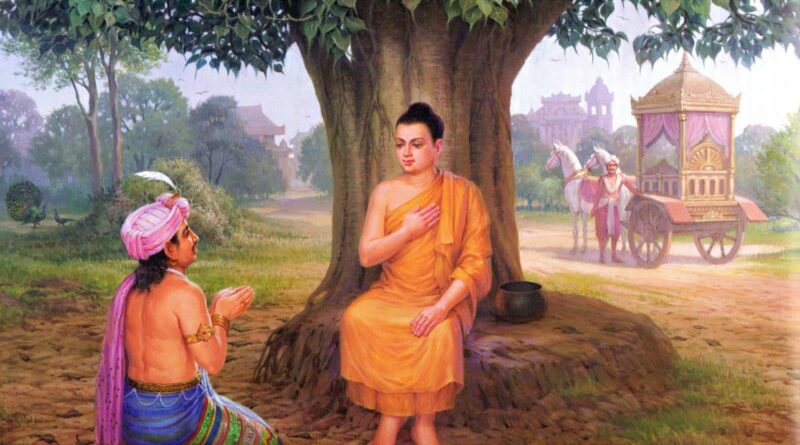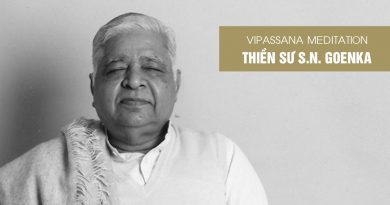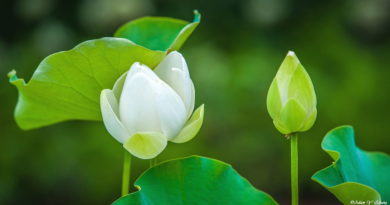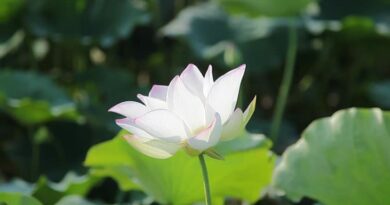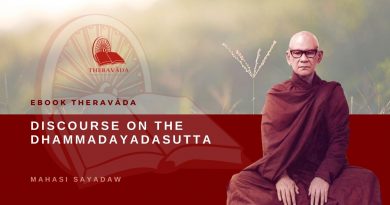Stories Of Select Disciples Of The Buddha: The Unfortunate Prince Jayasena
Stories of Select Disciples of the Buddha: The Unfortunate Prince Jayasena
Bimbisara was the king of Magadha during the Buddha’s life-time. It is not known for sure how many queens there were in King Bimbisara’s harem or how many children he had. But from the custom of royal families of that time and from our knowledge of Bimbisara’s lustful nature before he met the Buddha, we can infer that he had many queens and many children from these queens.
In the scriptures we come across the name of Prince Jayasena, one of King Bimbisara’s sons. His mother’s name is not known but his maternal uncle named Bhumija joined the Sangha. Although his father and uncle benefited from the teachings of the Buddha, Prince Jayasena did not get any benefit. This may be because, being a prince, he was constantly indulging in sensual pleasures. Therefore he may have found the doctrine of the pure Dhamma, where there is no craving, absolutely unattractive and may have wanted to stay away from it. Or he may have developed blind faith in some other teacher who may have been an opponent of the Buddha. Or it may have been a combination of both these causes.
At that time, the Buddha was sojourning at the Veḷuvana but the prince met neither him nor any of his chief disciples. Perhaps his teacher had warned him that the Samaṇa Gotama practiced black magic that enabled him to convert people and make them his disciples. This may have made Prince Jayasena wary of meeting the Buddha.
So one day, instead of meeting the Buddha, he went into the jungle outside the town to meet Samaṇera Achiravata. (A samaṇera is one who takes robes and practices to become an ascetic or samaṇa.) Achiravata had taken robes only a few days ago. (Achiravata means ‘not long before’ in Pali.) He was memorizing the Dhamma lore that he had heard from the Buddha and was trying to put it into practice.
Prince Jayasena approached the samaṇera and after exchanging greetings, sat on one side. It seems that the prince knew Achiravata even before he became a samaṇera. So he did not address him as samaṇera but called him by his name, Agnivesa.
‘Agnivesa, I have heard that when a bhikkhu living a diligent life of restraint and virtue puts forth effort, he attains the state of unwavering one-pointed concentration. Is this true?
‘Yes, this is absolutely true.’ replied Agnivesa.
In those days, there were some teachers who believed that sustained thoughtless concentration of the mind with the subsiding of the application of the mind to the object of concentration could never be achieved. The prince’s teacher may have been one of them. Or the prince himself, having seen that his mind was extremely fickle and could not remain thoughtless for even a moment, may have believed that true concentration of the mind could never be achieved.
Therefore, out of curiosity, he wanted to know whether in the teaching of the Buddha, there was true concentration of the mind. When he learnt that this was so, he requested, ‘Agnivesa, please explain the dhammas which make the mind thoughtless, as you have heard and understood it.’
Probably Agnivesa knew that the prince did not have faith in the Buddha and his teachings. Therefore he did not want to be involved in futile discussion. The subject of jhāna is so profound by itself; how can a discussion on this subject with a doubtful, faithless person be meaningful or fruitful? So, on one hand, understanding his own limitations in expounding the Dhamma and, on the other hand, keeping in mind the argumentative nature of the prince of alien faith, Agnivesa put a condition for the Dhamma discussion. ‘Prince, if you do not understand the Dhamma that I expound, you may continue to hold your previous views but you must stop the discussion at that point instead of starting an argument by asking more questions.’ The prince agreed to this condition.
Then Agnivesa taught him the Dhamma, hearing which the prince retorted, ‘Sustained thoughtless concentration of the mind with subsiding of the application of the mind to the object of concentration is impossible! Impossible!’ and stalked away.
We do not know exactly what Agnivesa taught but we can surmise that, along with the four states of jhāna, he must have certainly explained how a meditator-
‘vitakkavicārānaṃ vūpasamā’ – with the subsiding of application of the mind and attention of the mind to the object of concentration
‘ajjhataṃ sampasādanaṃ cetaso ekodibhāvaṃ’ – attaining concentration of mind with inner contentment,
‘avitakkaṃ avicāraṃ samādhijaṃ pītisukhaṃ upasampajja viharati’ – abides in the attainment of the second jhāna where there is rapture and pleasant sensations and the subsiding of application of the mind and attention of the mind to the object of concentration.
Prince Jayasena’s question was whether it was possible to attain concentration of the mind with the subsiding of application of the mind and attention of the mind to the object of concentration. He was not even interested in knowing about higher, more sublime states, so it is possible that Achiravata explained only this much. But he must have definitely clarified that before the second jhāna is attained, the attainment of the first jhāna is essential which is-
‘savitakkaṃ savicāraṃ’ – sustained attention and application of the mind to the object of concentration,
‘viviccheva kāmehi viviccha akusalehi dhammehi’ – but with cessation of thoughts of sensual pleasures and other unwholesome dhammas. In the first jhāna, thoughts do not cease totally but those that remain are wholesome, based on dhammic volition. All thoughts that create defilements in the mind are unwholesome. For the attainment of jhāna, all unwholesome thoughts have to be removed. But the reflection on sensual pleasures is the most unwholesome and it is absolutely necessary to get rid of it. Therefore it is said-
‘viviccheva kāmehi’ – if thoughts of lust are not eliminated, it is not possible to attain the first jhāna, let alone the second.
And then Achiravata must have made it clear that for the attainment of the first jhāna, it is absolutely necessary to remove the five hindrances. Among the five hindrances, the craving for sensual pleasures is the first and foremost. If there is lust within, the meditator cannot even create the appropriate foundation for the first jhāna, let alone attaining it. And the second jhāna is too far off.
It is essential to observe the five precepts in order to get rid of the five hindrances. If one is a monk, who has renounced the householder’s life, he should live a life of complete celibacy, totally abstaining from all sexual activity. A householder should avoid sexual misconduct, that is, he should abstain from adultery. A householder couple should maintain complete celibacy whenever they are living in a meditation centre and during uposatha days so that gradually, even while living the life of a householder, they can naturally and effortlessly observe complete celibacy by getting rid of all sensual desires. It is impossible to get rid of the other defilements of the mind without getting rid of the craving for sexual gratification. And unless one eradicates these defilements, it is impossible to attain right concentration-sammā samādhi, though one may practice and attain false concentration, where the object of concentration is not related to the truth pertaining to oneself. Clearly the Prince found this exposition unpalatable and so he walked away saying, ‘Impossible! Impossible!’
When the Buddha came to know of this incident, he said, ‘The jhānas can be attained only by abstaining from sensual pleasures.’ It is impossible that Prince Jayasena, who was always engaged in sensual pleasures, thinking lustful thoughts, burning in the fire of passion, and constantly seeking sexual gratification, could attain the jhānas.
We do not know whether Prince Jayasena, being of a very lustful nature, was unable to abstain from sexual activity for even a few days, in order to give a fair trial to this beneficial technique. Perhaps he was in the clutches of a teacher who did not give any importance to the practice of sīla and did not consider it wrong to be constantly indulging oneself in sexual pleasures.
During the life-time of the Buddha, there were six other influential teachers. Among them, four did not believe that wholesome or unwholesome deeds gave rise to desirable or undesirable consequences respectively. They neither believed that a moral, virtuous life of restraint was good nor that an immoral life was bad. These teachers included: Punna Kassapa, Makkhali Gosala, Ajit Kesakambala, and Prakrudha Kātyāyana. In the Indian society of those days, there were many disciples and followers of even these so-called spiritual teachers who encouraged unrestrained immoral behavior. All four of them were ‘saṇghīceva gaṇī ca gaṇācariyo ca, ñāto, yasassī titthkaro sādhusammato bahujanassa’ – meaning, they had a following of disciples, were thought to be wise, were successful, had formed their own sects, and many believed them to be saints.
It is indeed surprising that they were so successful and famous and had so many followers in spite of encouraging immorality. No doubt, all of them had majestic, charismatic and commanding personalities and they were able to explain matters of spirituality and meditation with great eloquence. Perhaps they were able to deceive many people on the strength of these qualities. In India, fortunately, from time to time, there have been saints who lived moral, virtuous lives, but unfortunately, there have also been such sweet-talking swindlers. Perhaps the prince was influenced by some such teacher and was unable to benefit from the pure beneficial Dhamma. Even though he was born in a royal family that was devoted to the Buddha, in the life-time of the Buddha and lived so close to the Buddha, he did not meet the Buddha and could not gain any benefit.
Source: VRIDhamma.org

